
Publisher:
Bonnie King
CONTACT:
Newsroom@Salem-news.com
Advertising:
Adsales@Salem-news.com

~Truth~
~Justice~
~Peace~
TJP
Oct-12-2011 02:31

 TweetFollow @OregonNews
TweetFollow @OregonNews
Political Prisoners
Dr. Mazin Qumsiyeh Salem-News.comBecause so many people are jailed for their resistance activities, Palestinian society has a profound respect and appreciation for the sacrifices of the prisoners. Time spent in prison is considered a badge of honour.
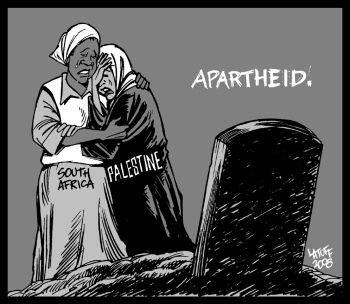 Artwork by the amazing Carlos Latuff, friend of Salem-News.com located Rio de Janeiro. See more of his work: Latuff Gallery |
(BETHLEHEM) - It is good news that over 1000 Palestinian political prisoners will be released in a prison swap deal. But there are still thousands of Palestinian political prisoners.
This Saturday we will be discussing in our cultural group the new book by Marwan Barghouthi about his life behind bars.
He will apparently not be part of this prisoner exchange deal neither will Ahmed Saadat of PFLP nor other key leaders. For English readers on this list, I translated my review (originally in Arabic) of Barghouthi's book and included it here.
Below that I include some text on prisoners from my book "Popular Resistance in Palestine: A history of Hope and Empowerment qumsiyeh.org/popularresistanceinpalestine." Hopefully, those two sections will give you some idea about the struggles of political prisoners.
Hopefully, Hamas (which did not get all it wanted but did score a political victory here) and Fatah (which scored a political victory by abandoning the futile US-led bilateral negotiations but also did not get all it wanted) could now implement their signed agreements especially on representation in the PNC.
-------------------------------------
Comparing Books by political prisoners: Nelson Mandela and Marwan Barghouthi
Review by Mazin Qumsiyeh
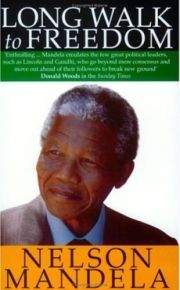 |
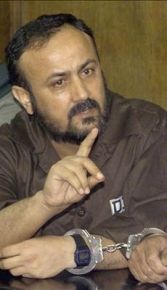 Marwan Barghouthi |
I read Nelson Mandel's inspiring autobiography many years ago. His book was titled "Long Walk to Freedom" because it was done after the end of apartheid. Marwan Barghouthi's book is not an autobiography in that sense because our people's walk to freedom is still ongoing. It is thus titled "One thousand days in prison isolation cell" and refers to a part of the struggle. We indeed look for the day that our political prisoners can write books at the end of the road to freedom.
Barghouthi's book is dedicated to his wife, his children, to the Palestinian people, to the Arab and Islamic world, to all those who struggle and resist occupation and colonization, and to fellow prisoners. Mandela's book similarly recalls family, people, and fellow political prisoners.
Barghouthi recalls his village life in Kuber with much passion and love in his newest book but you will find the national cause dominate the book. While Kuber is mentioned two or three times, Palestine is mentioned on just about every paragraph. Mandela had a rural beginning in a small village called Mvezo and still retains that love of land. He was a shepherd and plowed lands.
He dreamed of becoming a lawyer and was like Barghouthi interested in learning. He enrolled at Birzeit University in 1983 but due to exile and other factors only finished his bachelor in 1994 (in history and political science).
In 1998, he got masters in international relations. Both Mandela and Barghouthi led youth movements in their teens and became strong leaders even as they were pursued and jailed. Mandela like Barghouthi reports on mistreatment, lengthy incarcerations, resisting, and all that you expect from someone who went through such experiences.
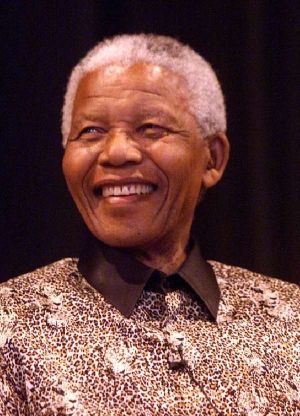
Mandela like Barghouthi says that it is not what he actually did that he was being punished for but for what he stood for. Both were charged by the respective apartheid regimes of leading armed guerrilla groups.
Through these writings, you see a common characteristic: great humility. They do not elevate themselves above the thousands who struggle for freedom. Even though some of us consider them key leaders, they themselves see their role as foot soldiers. Barghouthi describes being beaten on his private parts and losing consciousness waking later to find a gash on his head from falling and hitting the cement wall. The gash left a permanent mark.
But immediately after describing this, Barghouthi merely says (p. 21) that is it is merely a small example of what tens of thousands of activists were subjected to.
In the mid 1950s Mandela devised a plan and convinced fellow ANC leaders to adopt it that created a decentralized structure. Cells are formed at the grassroots level and select among them leadership at intermediate levels which insured secrecy and yet some level of democracy and operational meaning.
Barghouthi recalls how he was not happy about Arafat's autocratic structure and especially those around Arafat many of them were corrupt and not dedicated to the Palestinian struggle.
Barghouthi and Mandela speak of psychological warfare including the games of good investigator and bad investigator played to break prisoners' will.
A lot of what he says about mistreatment in prison will not be new to Palestinians alive today. Most Palestinians above age 30 have tasted at least some of these pains.
Of course Barghouthi suffered more than most Palestinian males his age.
Barghouthi talks about how critical the visit by his lawyer was to break his isolation and makes him feel connected to life outside the prison. Mandela also refers to the psychological boost received by knowing that people outside continue the struggle and care about the freedom of political prisoners.
Barghouthi states on page 130 how in prison you have lots of time to think. He recalls these thoughts in detail and they range from his feelings of solidarity with all persecuted and oppressed people around the world to poor programming on Palestinian television (when the channel was allowed in prisons).
Barghouthi speaks about his passions like reading books. He speaks of his love for his family. He speaks of women liberation. He speaks of learning languages in jail. The thoughts of Mandela in jail also dealt with similar issues. Barghouthi describes solitary confinement as "slow death" (p. 81). Mandela calls them the "dark years".
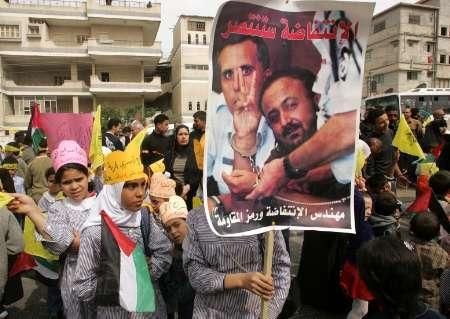
Barghouthi speaks about how the US and western positions put significant pressures on Arafat and that finally, Mr. Mahmoud Abbas was appointed prime minister. Abbas, according to Barghouthi, was known for his positions against resistance (p. 156). In one section he talks about how leadership did not rise to the challenge or match the enormous struggle, aspirations and needs of the people.
Barghouthi says on page 148 that Israel can defeat a particular leader or faction or group of people but cannot defeat the will of the Palestinian people. On the next page he articulates beautifully why resistance in all its types is so critical to success in achieving our collective goals.
The cost of occupation and colonization must be made unbearable or at least more than the benefit from it for Israel to back off. Barghouthi speaks about how his political actions did not stop in jail.
He gives several examples including the Palestinian factions observing a cease fire that started 19 December 2001 on the eve of the visit by American envoy General Anthony Zinni. That cease fire lasted for nearly a month but was broken by Israel's assassination of Ra'ed Karmi.
Barghouthi recalls that one of the more painful episodes was the abduction of his son Qassam. His letter to his son takes 30 pages of the book! It is an amazing letter that recalls the history of Palestine, the history of struggle, the history of the prisoner movement and much more.
But the letter also reflects on feelings and attitude of Barghouthi himself in key periods of his life.
How he felt when his son was born while he is in jail. How he built a relationship with his wife despite being a man spending most of his life either on the run or in jail.
It is very detailed mentioning dates and events and surroundings that put the reader (his son and us) in those circumstances. He recalls the death of his father 5 August 1985.
He talked about his biggest pains (which were not the interrogations, torture or solitary confinement) but when he was exiled to Jordan in the late 1980s. Yet he also says that after his family joined him in exile from the homeland, the family life alleviated the pain of exile from his homeland. The letter ends with recommendations he gives to his son like any father gives to his son.
But here the recommendations are about exercising, reading books, learning languages, and keeping friendly relations with fellow prisoners. The book finishes with a section about his wife and a final section about collaborators in Israeli jails.
It is significant that he decided to conclude with detailed exposure of the despicable methods of collaborations. Similarly, Mandela's autobiography includes a section on treason. Oliver Tambo described Mandela as passionate, fearless, impatient and sensitive.
I never met either Mandela or Barghouthi personally but after reading these books, I can say that I agree not only with these adjectives applied to Mandela and Barghouthi but I can think of many others: humble, honest, intelligent, articulate, and I can go on but I will leave that to historians to give people their due. But knowing such people at least through their writings and writings of others about them adds to our conviction that freedom is inevitable to nations that have such individuals.
Prison struggles: sections from the book "Popular Resistance in Palestine: A History of Hope and Empowerment"
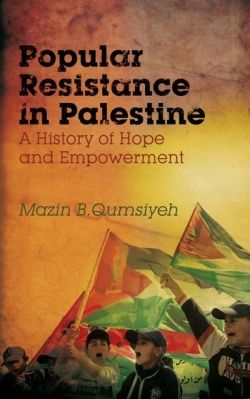 Order Dr. Qumsiyeh's book from Amazon |
In this book I discuss the efforts for release of political prisoners that started in the 1920s when the women movement in Palestine succeeded in gaining release of three prisoners (Chapter 6). In chapter 7, we find that "On 17 May 1936, prisoners in Nur Shams prison declared a strike and confronted the prison guards who ordered soldiers to open fire. One inmate was killed and several wounded as prisoners shouted in defiance: 'Martyrdom is better than jail'.(ref) On 23 May 1936, Awni Abdel Hadi, secretary general of the Arab Higher Committee, was arrested.(ref).. On 9 September 1939, fighters took over Beersheba government facilities and released political prisoners from the central jail."
When the British government felt more confident in 1942-43 about the prospects of winning the war, it released some Palestinian political prisoners and allowed others to return from exile. Attempts to revive political activity during this period were nugatory. Awni Abdel Hadi returned from exile in 1943 and revived Hizb Al-Istiqlal, with help from Rashid Alhaj Ibrahim and Ahmed Hilmi Abdel Baqi, and even started a national fund."
In other section sof the book, I discussed the struggle of Palestinains inside the Green Line, many of them ended in jail as political prisoners. Like Palestinains in the West Bank and Gaza, they supported their political prisonesr and struggled for their release. The struggle in the occupied territories continued. When Israel introduced extensions of so-called 'administrative detention' (detention without trial) for up to six months, a strike among Palestinian political prisoners started 11 July 1975.
Political prisoners in Israeli jails also organised themselves into effective committees [during the uprising of 1987] which carried out collective strikes which were especially effective in the 1980s and early 1990s.36 King interviewed Qaddourah Faris (from Fatah) who was a key leader of the prisoner movement.
He talked about a successful hunger strike for humane treatment that involved 15,000 prisoners throughout Israeli jails.(ref) In 1990, Israel held over 14,000 Palestinian prisoners in more than 100 jails and detention centres at one time according to Middle Rights Watch.(ref) Even Israeli supporters like Anthony Lewis became outraged enough to write: "The Israeli Government has taken thousands of Palestinians from the occupied West Bank and Gaza into what it calls 'administrative detention.'
That means they are held as prisoners, for up to six months at a stretch, without trial. At least 2,500 of the detainees are imprisoned in Ketziot, a tent camp in the burning heat of the Negev desert. On Aug. 16 Israeli soldiers shot and killed two of-the detainees there. The story had further grim details that I shall omit because they cannot be confirmed ...
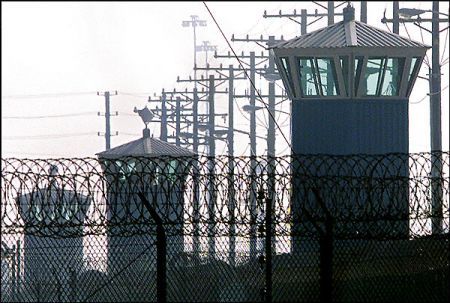 Ketziot prison for Palestinian prisoners |
The prisoners at Ketziot, it must be emphasised, have not been convicted of doing anything. They have had not a semblance of due process. They are there because someone in the Israeli Army suspects them - or wants to punish them.
Mr. Posner went to Ketziot to see two Palestinian lawyers being held there and four field investigators for a West Bank human rights group, Al Haq. He concluded that they had been detained because of 'their work on human rights and as lawyers."(ref)
On 6 December 1998, during President Clinton's visit, over 2,000 political prisoners went on hunger strike demanding to be released. Their message to both the Israeli and Palestinian leadership was not to negotiate issues that do not place their release on the agenda.
In September 1988, the Israeli army stated that the number of detainees it held was 23,600 and Peter Kandela reported cases of the use of torture on detainees.
After the Oslo Accords many thousands of Palestinians were released. But many thousands more were imprisoned in the uprising that started in 2000. In total, over 700,000 Palestinians spent time in Israeli jails. On occasion, nearly 20 per cent of the political prisoners were minors.
Political prisoners in Israeli jails also participated in non-violent resistance. Israel radio reported on a hunger strike by prisoners in the camps of Jenin, Ramallah and Nablus, who demanded improvement in their deplorable conditions in 1987.
Al-Ansar prison in southern Lebanon, where thousands of Palestinians and Lebanese political prisoners were held by Israeli occupation forces, showed incredible acts of resistance and resilience, ranging from hunger strikes to refusal to obey orders to writing.
Thousands of Palestinian prisoners went on a hunger strike from 15 August to 2 September 2004. During this time, the Israeli authorities tried various methods from persuasion to threats to beatings to break the strike; 13 UN agencies operating in the occupied areas expressed their concern.98 Outside the prisons, Palestinians and internationals protested and worked diligently to spread the word about the prisoners' demands and their plight.
It started with the prisoners' families, many of whom joined the hunger strike. Crowds assembled on 16 August 2004 outside local offices of the Red Cross and marched to the Gaza headquarters of the United Nations where they delivered a letter addressed to Secretary General Kofi Annan, calling for him to apply pressure on Israel and improve the prisoners' conditions.
They demonstrated again in the thousands two days later.99 The PA, Palestinians inside the Green Line and the ISM called for hunger strikes outside the prisons to support the prisoners' demands.
The strike slowly gained momentum despite repressive measures.101 Israel's Public Security Minister Tzahi Hanegbi stated: 'Israel will not give in to their demands. They can starve for a day, a month, even starve to death, as far as I am concerned'
Eventually, the prison authorities conceded that the prisoners were entitled to some basic humanitarian rights. Palestinian female political prisoners in Telmud Prison were mistreated and on 28 November 2004 their spokeswomen who complained about this was beaten and punished. When others complained, they too were punished, so they too went on hunger strike.
Prisoners continued to use hunger strikes to protest against ill treatment and draw attention to their plight. For example, on 16 February 2006, Jamal Al-Sarahin died in prison. He was a 37-year-old 'administrative detainee' (held without charge or trial) who had been detained for eight months and badly mistreated. Prisoners called a one-day hunger strike.
On 11 March 2006, a sit-down strike in front of the ICRC in Hebron was held to demand better treatment of prisoners. On 27 June 2006, 1,200 Palestinian political prisoners in the Negev Desert started a hunger strike to protest against the arbitrary and oppressive practices of the prison administration. In total, over 700,000 Palestinians have spent time in Israeli jails and the latest statistics show that 11,000 are still being held according to the Palestinian Prisoners Society.
By 2009, Palestinians in Israeli prisons had achieved a number of successes by non-violent struggle and civil disobedience, including wearing civilian clothes (no orange uniforms), access to news, reasonable visiting rights and better access to healthcare. But the Prison Administration continues to chip away at those rights.
Unfortunately, the PA is forced to subsidise the cost to Israel of maintaining Palestinian prisoners.
Because so many people are jailed for their resistance activities, Palestinian society has a profound respect and appreciation for the sacrifices of the prisoners. Time spent in prison is considered a badge of honour. Prisons also shape character. One former prisoner stated: Like any human community, there are contradictions, but there is a common thread in the experience in prison that gives us strength, a common goal, a common purpose. We are joined together in struggle, so our shared experiences only make us stronger.
(Excerpts from the book: "Popular Resistance in Palestine" by Mazin Qumsiyeh, Pluto Press, Available in Arabic from Muwatin, Ramallah).
 Mazin Qumsiyeh, PhD - Popular Committee to Defend Ush Ghrab (PCDUG) "A Bedouin in Cyberspace, a villager at home. Mazin is a Professor in Bethlehem and Birzeit Universities, Chairman of the Board, Palestinian Center for Rapprochement Between People, pcr.ps. He has been an Associate Professor of Genetics; Director, Cytogenetics Laboratory at Yale University School of Medicine. He previously held a similar position at Duke University. Professor Qumsiyeh has authored over 110 scientific papers in areas of mammalogy, biology, and medicine including mammalian biology and evolution, clinical genetics, and cancer research. He has published over 100 letters to the editor and 30 op-ed pieces in International, national, regional and local papers on issues ranging from politics to environmental issues. His appearances in national media included the Washington Post, New York Times, Boston Globe, CNBC, C-Span, and ABC, among others. He is the founder and president of the Holy Land Conservation Foundation and ex-President of the Middle East Genetics Association, and Prof. Qumsiyeh won the Jallow activism award from the Arab American Anti-Discrimination Committee in 1998. Those are just a small list, visit Mazin Qumsiyeh's amazing and informative Website to learn more: qumsiyeh.org.
Mazin Qumsiyeh, PhD - Popular Committee to Defend Ush Ghrab (PCDUG) "A Bedouin in Cyberspace, a villager at home. Mazin is a Professor in Bethlehem and Birzeit Universities, Chairman of the Board, Palestinian Center for Rapprochement Between People, pcr.ps. He has been an Associate Professor of Genetics; Director, Cytogenetics Laboratory at Yale University School of Medicine. He previously held a similar position at Duke University. Professor Qumsiyeh has authored over 110 scientific papers in areas of mammalogy, biology, and medicine including mammalian biology and evolution, clinical genetics, and cancer research. He has published over 100 letters to the editor and 30 op-ed pieces in International, national, regional and local papers on issues ranging from politics to environmental issues. His appearances in national media included the Washington Post, New York Times, Boston Globe, CNBC, C-Span, and ABC, among others. He is the founder and president of the Holy Land Conservation Foundation and ex-President of the Middle East Genetics Association, and Prof. Qumsiyeh won the Jallow activism award from the Arab American Anti-Discrimination Committee in 1998. Those are just a small list, visit Mazin Qumsiyeh's amazing and informative Website to learn more: qumsiyeh.org.
Articles for October 11, 2011 | Articles for October 12, 2011 | Articles for October 13, 2011


Quick Links
DINING
Willamette UniversityGoudy Commons Cafe
Dine on the Queen
Willamette Queen Sternwheeler
MUST SEE SALEM
Oregon Capitol ToursCapitol History Gateway
Willamette River Ride
Willamette Queen Sternwheeler
Historic Home Tours:
Deepwood Museum
The Bush House
Gaiety Hollow Garden
AUCTIONS - APPRAISALS
Auction Masters & AppraisalsCONSTRUCTION SERVICES
Roofing and ContractingSheridan, Ore.
ONLINE SHOPPING
Special Occasion DressesAdvertise with Salem-News
Contact:AdSales@Salem-News.com



Terms of Service | Privacy Policy
All comments and messages are approved by people and self promotional links or unacceptable comments are denied.
[Return to Top]
©2026 Salem-News.com. All opinions expressed in this article are those of the author and do not necessarily reflect those of Salem-News.com.